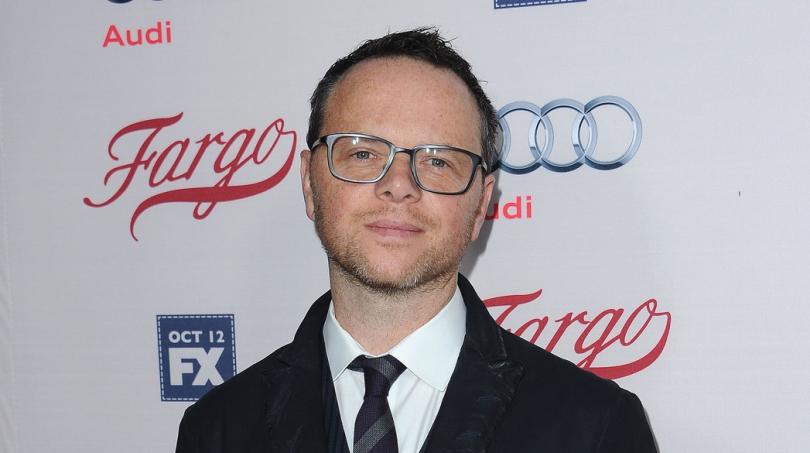
From my perspective – ie, sitting at an awkward slant on a defective swivel chair and staring at a glowing screen that makes my eyes tired – three television shows have dominated social media discourse this year.
There’s the perennial presence of Game of Thrones, inevitably dominating the conversation like a giant dragon kicking dirt over a squabble of elves with its hind leg (I do not watch Game of Thrones). It’s been on top since it first popped up in 2011, and there’s no sign of its popularity flagging now.
The second is The Handmaid’s Tale, the new adaptation of Margaret Atwood’s brilliant 1985 novel, starring Elisabeth Moss. The unfortunate state of politics at the moment has lent this dystopian programme a relevancy that its creators presumably neither intended nor wanted. Women around the world have been protesting about reproductive issues and women’s rights by wearing handmaid-style red cloaks and white bonnets. These images, along with the quality of the show’s writing and acting, have been much-discussed.
And the third is Twin Peaks, which maybe people are only talking about on my part of the internet. We were all anticipating the return of the series after 26 years, but none of us were quite expecting it to be quite as good as it has been. Predictably, it has been confusing, eccentric and mind-blowingly niche, but that hasn’t stopped it blazing a trail. Episode eight of the new series, in particular, was one of the most extraordinary episodes of television I have ever seen. But that’s for another article.
This one is about a programme which has been almost entirely overlooked: Fargo.
The programme has recently finished its third season, and I can remember the acclaim that came with the first. Much like Twin Peaks, anticipation had been high, while actual expectations were somewhat further down.
If anything, I was a personal microcosm of that situation. I adore Fargo, the 1996 film by the Coen brothers that acts as the inspiration for the series. I had decided that any attempt to adapt it was blasphemy, and I would avoid the show at all costs.
But gradually, good reviews and my sister’s insistences wore me down, and I gave the show a shot.

What I discovered was a show that had clearly been made by someone with the same reverence for the original movie as me – someone familiar enough with it that they were able to take its careful tone and transfer it to television. Because that’s all that was really transferred: tone. Fargo the programme shares nothing with Fargo the film beyond the setting of Minnesota and North Dakota, some subtle references, and that tone of bleak comedy, nihilism and hard-fought optimism.
So, I was won over and impressed by the first season. Then something amazing happened: the second season was even better. And the third season, which finished screening on British television last month, was better still.
If you’re still unfamiliar with Fargo, each season very loosely follows the same plot: ordinary Midwesterners get reluctantly drawn into the world of crime, and their lives spiral spectacularly out of control. Wrong decisions are made. People die horribly. A pragmatic yet optimistic police officer begins to follow the breadcrumbs.
It’s a formula that works thanks to the unceasingly creative minds at work in its production. There’s no artificial “ramping up” – each season just places another crop of odd characters in another series of disastrous situations, and lets the wit and skill of the writers do its work.
The most recent season, for example, was set in 2010, and followed the rivalry between the ‘Parking Lot King of Minnesota’ Emmit Stussy, played by Ewan McGregor, and his less successful twin brother Ray, also played by McGregor. After Emmit is bullied by some shady new business partners, their bickering turns into something far more serious.
McGregor’s is (are) the standout performance(s) in an exceptional cast, but not a solitary wrong note is hit all season by anyone. David Thewlis is the perfect creepy puppet-master, Michael Stuhlbarg is the perfect appalled friend, and Carrie Coon is the perfect pragmatic police officer, a character far more dimensioned than I’ve made her sound.
But the real star, as ever, is the storytelling. Episode three of the new series follows the police officer’s trip to LA to find out more about her sci-fi writing grandfather, with her thoughts being mirrored by the animated story of a lonely robot from one of her grandfather’s books. It’s one of the best episode of television I’ve seen all year.
Episode four has music and narration taken from Prokofiev’s Peter and the Wolf. It works so well, I felt like I was being spun upside-down at times.
For innovation and creativity in writing, Fargo really is one of the best TV shows of the last ten years. A fourth season will come out next year, and it will be just as good, if not better, as those that came before it.
While we’re obsessing over the newest big-budget, loud and angry small screen adventure, Fargo will continue to be quietly brilliant.




